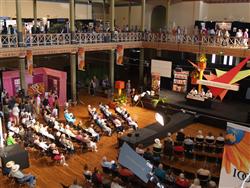
How to Learn?
Home Studies in Education, School and College operation and Management
This advanced certificate develops unique and highly valuable skills for workplace trainers, teachers or managers in the field of vocational education; with a particular relevance to both management as it relates to modern and technologically advanced approaches to learning.
It is relevant to both existing teachers, and aspiring educators who wish to break from traditional approaches to education and discover new and more innovative ways of facilitating learning with outcomes that focus on life skills such as networking, problem solving and communicating.